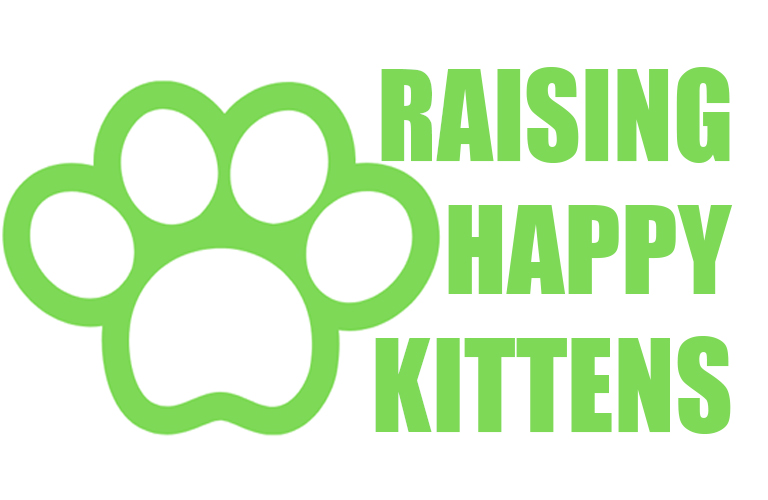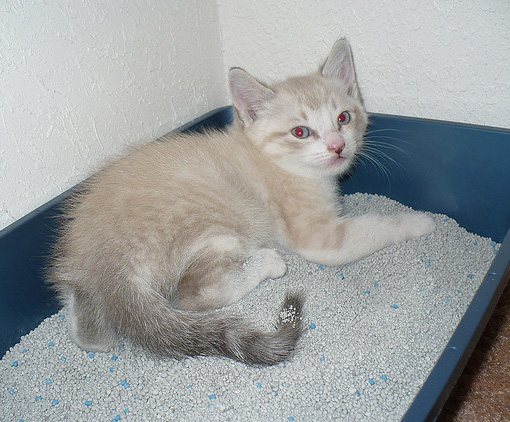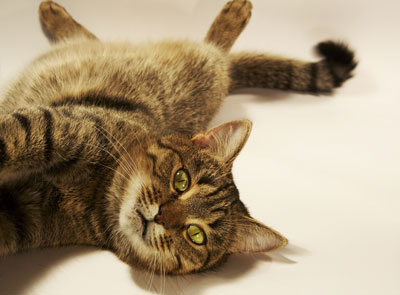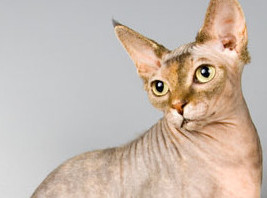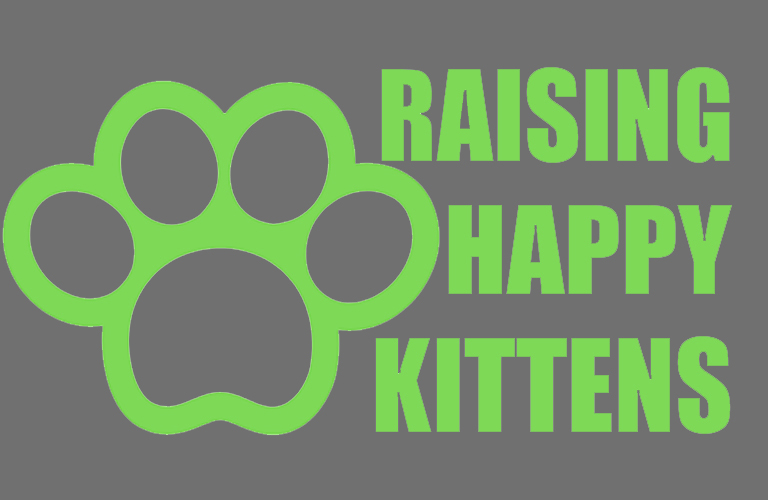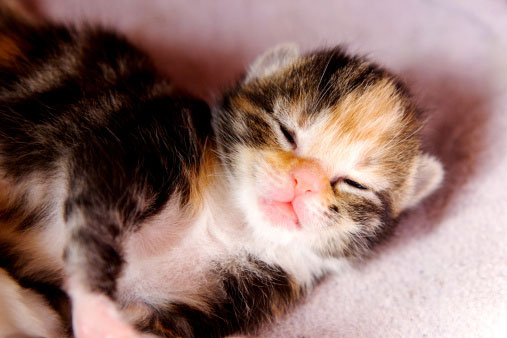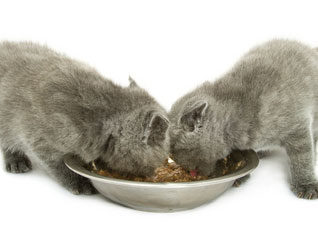Kitten diarrhea is unfortunately quite common, and definitely no picnic for anyone involved.
While an episode here or there is not much to worry about, kitten diarrhea can be fatal if the proper steps aren’t taken to stop it from happening.
One distinction to be aware of is acute versus chronic kitten diarrhea.
Acute means your kitten is continuously eliminating loose, watery stool over a short period of time.
Chronic diarrhea means that the loose bowel movements occur once in a while, but over a long period of time.
Both of these can point to various causes that will have to be determined by your vet.
However, acute diarrhea is the most deadly since they can easily die of dehydration.
Dehydration Dangers of Diarrhea
Little kittens are fragile, as are their internal physical mechanisms.
In nature, they get most of their water intake from the rodents and birds they eat, so they are notoriously poor water drinkers.
Dehydration can easily occur if your kitten is experiencing continuous diarrhea, because he is losing his important bodily fluids, vitamins, and minerals through his stool.
You can test for dehydration by holding his scruff between your thumb and forefinger.
If you let go and it springs back in place quickly, he is well-hydrated. If it stays up for any period of time in a “peak,” then you know he’s dehydrated.
If this happens, don’t think that you can just force water into his mouth, because it’s the lack of electrolytes and minerals that is also dangerous.
Please get your kitten to the vet right away!
The veterinarian or her assistant will likely give him subcutaneous fluids, or “Sub-Q” fluids to counteract the electrolytes lost during kitten diarrhea.
They will stick a needle into his scruff and through this will flow a mixture of water, saline, and possibly other vitamins and nutrients that the vet will inject right into the bag itself.
When the fluid stops flowing, that means your kitten has enough for now.
He may look funny and lopsided with a big watery lump on the back of his neck, but it will go away as it gets absorbed into his body. The more dehydrated he is, the more quickly it will disperse.
When to Call the Vet
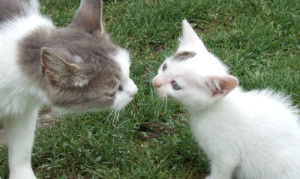 Get your vet’s advice first and foremost–the following are standard guidelines to follow as a backup, and are not to replace your vet’s recommendations.
Get your vet’s advice first and foremost–the following are standard guidelines to follow as a backup, and are not to replace your vet’s recommendations.
If you notice signs of illness in your kitten other than the diarrhea, make sure you tell the veterinary clinic over the phone all of his symptoms.
If they don’t have an open appointment slot that day, they may recommend you find an emergency clinic to treat him.
Depending on where you live and the availability of veterinary hospitals, you may still have to wait several hours before your kitten can be seen by anyone.
Your vet should give you some at-home instructions for kitten diarrhea treatment in the meantime before your appointment.
Treating Kitten Diarrhea Before the Vet Visit
If you are not able to take your kitten to see the veterinarian right away, the first thing you should do is help prevent your kitten from having any more episodes of diarrhea.
You don’t want to prevent bowel movements, but you do want to make them firm to prevent further fluid loss.
Giving him something gentle for his stomach will help. You can try giving him cooked hamburger mixed with some rice and plain cultured yogurt.
You can mix some fiber in with this mixture to help firm up his bowels.
The kitten diarrhea could be something as simple as he ate a nasty bug or a piece of people-food fell on the floor, causing an upset stomach.
Until he has seen the vet, though, always take kitten diarrhea seriously.
If it seems like food of any kind is making his condition worse you can restrict his intake, but do not wait more than 24 hours in between feedings.
Your kitten needs lots of nutrients to grow and stay healthy, and also to keep his immune system strong to fight off any potential illness causing the diarrhea in the first place.
Also, do not give your kitten any over-the-counter medicines unless directed to do so by your veterinarian.
Some of these are really only meant for humans and can make your kitten sick. Plus, as stated earlier, you don’t want to prevent bowel movements from happening, you just want them to be firm.
If your kitten has a stomach virus, for example, keeping them inside his body could make him even sicker.
If the vet has determined that your kitten has chronic diarrhea, or even if you have an adult cat that gets loose stool at times, you can try using a probiotic supplement like Fortiflora to firm up the stools.
Safeguarding Other Pets and Family Members
If you have other pets in your home, especially other young kittens, make sure you separate the sick kitten from them as soon as you are aware of a kitten diarrhea episode.
He could have a parasite, worms, or other affliction that you don’t want to spread to others.
Litter Box Safety
Set out clean, fresh litter boxes: one for the sick kitten, and one for the other kittens. If you have adult cats, they should have their own separate litter boxes anyway.
If they don’t, make this a priority going forward. There should be one litter box per cat, plus one.
To clean the litter box affected by kitten diarrhea, dump all of the litter out and disinfect the litter pan with bleach water.
Make sure you scrub any feces off the edges of the litter box and rinse the bleach out very well before refilling.
Keep your kitten with diarrhea away from the other kittens, cats, and even dogs in the home until your vet has diagnosed the cause of his kitten diarrhea and prescribed a treatment.
Make sure you give him lots of love and attention during his recovery, too!
